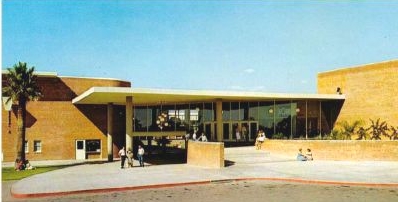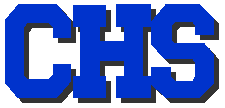CLASS
OF
Catalina High School, Tucson, Arizona, USA
The following is from Ford Burkhart who wrote:
Here is an essay I wrote at request of a newspaper in central China, who got my name through a mutual friend. :
To all in our very lucky and blessed class, please write or submit anything you have written on 9/11, since it did really end our 'innocence' of 1959 and make us value what is really important to us. -- Ford
------
9/11/01
By FORD BURKHART
The New York Times
On this anniversary of Sept. 11, Americans will have a wide variety of feelings, which is just as it should be. What unites Americans has always been impossible to define precisely, even though we know there are many values and traditions that we share. As a journalist, I know it is my job to help provide people with the most accurate, clear and credible version of events, and let them draw their own conclusions.
On a day like Sept. 11, we have at least two feelings that pull at our hearts: on one hand, we must defend the individual freedoms that have always kept us resistant to tyranny or oppression; on the other, we will feel great sadness for the many hundreds of people from all over the world that died on that day. My newspaper, the New York Times, has written about each one of them, with an individual sketch and photograph, to show the respect we have for their individual lives and contributions.
After September 11th do Americans feel safe? That question is not so easy to answer. We feel ready to do what Americans have always had to do to live in a country based on individual liberty: We will make the country as a safe as we reasonably can, knowing no one is completely safe in a country that guarantees so much freedom to individuals.
What is more important to us, I believe, is that we debate our political values and decide the best way to put our values into practice, and I think that is happening with more vigor than was the case before Sept. 11. There are conversations about the individual rights of, for example, airline passengers who for one reason or another come under suspicion. And of course, there are many debates going on about the rights of everyone who is arrested or detained for various reasons.
There is no question that Sept. 11 has brought out the best in Americans, our willingness to sacrifice for the common good. I know two friends in Arizona, my home state, who are professional cooks. They recently cooked for the many firefighters who have been fighting large forest fires in the West -- they cooked for weeks, sleeping only an hour or two a day, as volunteers, to help the community cope with a crisis. That is just the spirit that Americans have shown in New York City, and across the country, when we responded to the crisis of Sept. 11. It has been a time to volunteer, to support the less fortunate, to debate the American values that some may have taken for granted before Sept. 11, all this while we take a few moments to mourn for the ordinary citizens and firefighters and police officers who are dead and to honor their memories.
What's the effect on the US people psychologically and financially? Financially, I doubt many of us can even comprehend the numbers that are in the news about the costs of Sept. 11. We know it will be immense. But as human beings, we know that our own lives are changing permanently. None of us will ever be able to look up at the sky as a plane flies over on a beautiful day in the park or on the street without thinking of Sept. 11. It will be many years, decades from now, before we know just what the psychological changes will mean for all of us. Just as the lives of my parents were changed by the invasion at Pearl Harbor during World War II, the changes in our lives will become part of global history.
But, there is another side. We have all come together in important ways after Sept. 11. We take time to listen to each other, to respond as we can to our human needs. Many of us are thinking more deeply about all of the victims of forces beyond their control, the thousands of children whose lives are taken each year for lack of clean, fresh water in the poorer countries of the world, the damage to the environment that comes from unwise use of natural resources, the lack of educational opportunities that so many in the world confront. Our own suffering has made us more sensitive to the needs of others in the world, and to the need for vigorous public debate of our own political choices at home.
In my own case, my family was safe during Sept. 11 and since then. On Sept. 11 before 9 a.m., I was approaching the Hudson River from the New Jersey side opposite Manhattan Island, and watched for the last time the Twin Towers, intact against the clear blue sky. As I watched, I saw a bit of white smoke come from one tower. I said to my friend that the smoke looked dangerous. At first, he said it was nothing. Then as we neared the Towers, the smoke grew to a larger and larger cloud. The radio suddenly went off; the antenna that transmits many of the radio stations in New York is located on one of the Towers. Thereafter, a station whose transmission came from elsewhere alerted us of the news that a plane had hit one of the towers.
We parked the car and walked out to our small sailboat, which we had planned to use for a morning sail on the Hudson. We stood on the boat and watched the smoke and flames grow in one tower. "We can fix this," I said to myself. Then flames appeared in the other tower; the plane had struck as we watched, but we didn't see it because the sky was so full of distractions. Before long, we saw one tower slide slowly, slowly down to the earth. My first thought was, "We can fix this the other tower." And I repeated those words until the second tower, too, shimmered slowly to the earth like a pillar of wet sand.
My second thought was, as a journalist, to get to the newsroom. But the radio announced that the harbor and all bridges and tunnels crossing the rivers to enter Manhattan had been closed, for security. I decided to go home and call my office to see what to do. Just then something happened. A small red jeep pulled up near the dock. The driver, a young man in a black T-shirt jumped out and asked me,
"Do you have a boat?"
"Yes," I replied. "Why?"
"Well," he said, "I am a firefighter, from Great Jones Street, and I need
to join my company.'' He was out of breath. ''I got caught in New Jersey on my day off.''
The harbor was closed, we explained. But I offered to drive him along the Hudson River edge, through the police barricades with his firefighter's badge flashing out the window of my car. We found boats bringing the wounded from New York. We would ask if one of these emergency boats would take him across.
We finally found a boat at the main square in Jersey City. He jumped out and went off, ran off, to board the boat, to fight a fire in which we suspected that many had already been killed. We had just heard on the radio that many firefighters and policemen had very likely died in the collapse of the buildings.
He didn't come back that night. One of us watched his car the next day, and the next. We pledged to keep watching the red Jeep and trusting that he would return. Happily, this firefighter survived, and came back many days later for his jeep. But hundreds of other firefighters died.
This firefighter's story is important to me. It shows the dedication that so many Americans had to help others in this disaster. They thought of little else. Now, since the event, we are debating every policy. What to do about terrorism? No one agrees completely. We are just thankful we have the freedom to debate policy freely, endlessly. History will judge whether we do the right thing this year and the next.
What is important, I think, is that we protect our values and our individual freedom to think and debate. That is what I will be thinking about on Sept. 11, at 10:29 am as we have a moment of silence.
Ford Burkhart (New York Times International News Editor), New York
Written for the Chongching Journal, a newspaper in Southwest China.
Ford
Burkhart's
Personal
Account of
9/11




